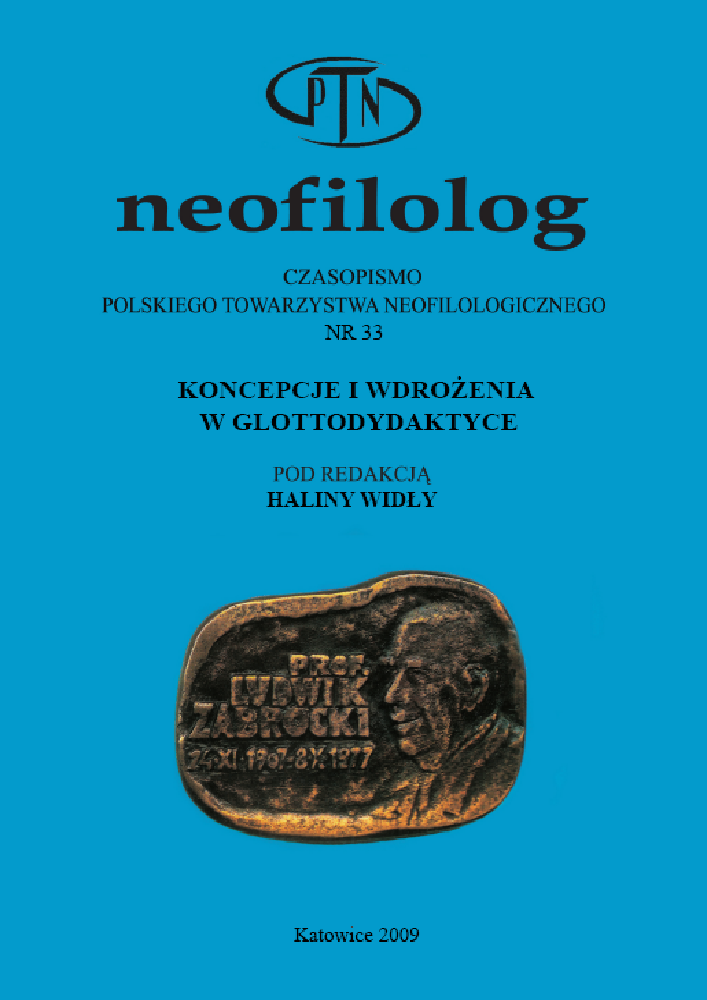Résumé
The article discusses kinds of verbal reports and their characteristic features. More specifically, it focuses on: a) the validity of particular types of verbal reports and the data these are likely to provide, b) a quite difficult distinction between introspection and retrospection in researching reading, and c) the characteristic features and limitations of think-aloud protocols (categorized as introspective verbal report), especially if used to investigate the concrete reading format of gapped-text.
Références
Afflerbach, P. P. 1990. « The influence of prior knowledge on expert readers’ main idea construction strategies ». Reading Research Quarterly 25 : 31 – 46.
Carver, R. 1992. « Effect of prediction activities, priori knowledge, and text type upon Mount comprehended: using rauding theory to critique schema theory research ». Reading Research Quarterly 27 : 164 – 174.
Cohen, A. D., Upton, T. A. 2007. « ‘I want to go back to the text’: response strategies on the reading subtest of the new TOEFL ». Language Testing 24 : 209 – 250.
Conrad, F., Blair, J., Tracy, E. 1999. « Verbal reports are data! A theoretical approach to cognitive interviews ». Proceedings of the Federal Committee on Statistical Methodology Research Conference, www.bls.gov/osmr/abstract/st/st990240.htm DW 19.07.2009.
Ericsson, K. A., Simon, H. A. 1993. Protocol analysis: Verbal reports as data. Cambridge : Bradford books/MIT Press.
Garner, R., Wagoner, S., Smith, T. 1983. « Externalizing question-answering strategies of good and poor comprehenders ». Reading Research Quarterly 18 : 439 – 447.
Hosenfeld, C. 1977. « A preliminary investigation of the reading strategies of successful and nonsuccessful second language learners ». System 5 : 110 – 123.
Jimenez, R. T., Garcia, G. E., Pearson, P. D. 1996. « The reading strategies of bilingual Latina/o students who are successful English readers: opportunities and obstacles ». Reading Research Quarterly 31 : 90 – 112.
Konieczna, A. 2009. The use of strategies in gapped-text reading task, referat konferencyjny, 3rd International May Conference on English Studies, Kraków [w druku].
Matsumoto, K. 1993. « Verbal report data and introspective methods in second language research: state of the art ». RELC Journal 24 : 32 – 60.
Olshavsky, J. E. 1976 – 1977. « Reading as problem solving: an investigation of strategies ». Reading Research Quarterly 12 : 654 – 674.
Pressley, M., Afflerbach, P. 1995. Verbal protocols of reading: the nature of constructively responsive reading. Hillsdale : Lawrence Erlbaum Associates.
Pressley, M., Hilden, K. 2004. « Verbal protocols of reading » (w) Literacy research methodologies (red. N. K. Duke i M. H. Mallette). New York : The Guilford Press.
Russo, J. E., Johnson, J. J., Stephens, D. L. 1989. « The validity of verbal protocols ». Memory and Cognition 17 : 759 – 769.
Licence
© Anna Konieczna 1970

Ce travail est disponible sous licence Creative Commons Attribution - Pas de Modification 4.0 International.
Auteurs :
Les auteurs de textes acceptés pour publication dans la revue Neofilolog sont tenus de remplir, signer et renvoyer à l'adresse de la rédaction, un accord sur l'octroi d'une licence gratuite pour les œuvres, avec obligation d'accorder une sous-licence CC.
En vertu de cet accord, les auteurs des textes publiés dans la revue Neofilolog accordent à l'Université Adam Mickiewicz de Poznań une licence non exclusive et gratuite et permettent l'utilisation de la sous-licence Creative Commons Attribution-NoDerivatives 4.0 International (CC BY-ND 4.0).
Les auteurs se réservent le droit de disposer librement de l'œuvre.
Utilisateurs :
Les utilisateurs d'Internet intéressés ont le droit d'utiliser les œuvres publiées à partir de l'année 2017 sous réserve des conditions suivantes :
- reconnaissance de la qualité d'auteur - l'obligation de fournir des informations sur la qualité d'auteur, le titre, la source (liens vers l'œuvre originale, DOI) et la licence, ainsi que l'œuvre distribuée ;
- sans créer d'œuvres dérivées - l'œuvre doit être conservée dans sa forme originale, p. ex. les traductions ou les interprétations ne peuvent être distribuées sans le consentement de l'auteur.
Tous les textes publiés sont soumis au droit d'auteur.
Autres :
L'Université Adam Mickiewicz de Poznań se réserve le droit à la revue dans son ensemble (mise en page, forme graphique, titre, conception de la couverture, logo, etc.).
.
